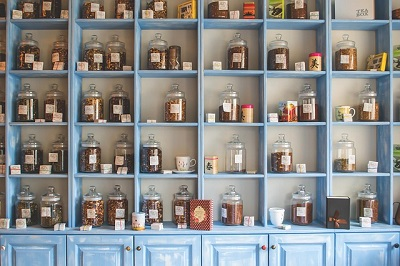Reviving Your Prostate Health: The Surprising Benefits of Quercetin for Chronic Prostatitis
Chronic prostatitis (CP)/chronic pelvic pain syndrome (CPPS) is one of the four major types of prostatitis, and the prevalence of prostatitis is over 90% to 95%. It severely affects the quality of patients' lives due to its painful and obstructive urination difficulties. However, the standard treatment remains unclear.

Given the lack of proven efficacy of traditional therapies, such as antibiotics, anti-inflammatory drugs, and alpha-blockers, many patients have turned to phytotherapy and other alternative therapies. In recent years, phytotherapy and physical therapy have gained momentum because of their safety, effectiveness, and high compliance. Phytotherapy is an option for chronic prostatitis.
Phytotherapy refers to the use of plant extracts as medications for the treatment of various urological disorders. These alternative therapies are gaining more and more attention in treating chronic prostatitis because of their advantages over other traditional medicines in terms of lower side effects, higher efficacy, potency, and improvement in signs and symptoms. Among them, quercetin is a highly effective plant extract.
Quercetin is a class of bioflavonoids in the polyphenol family, which is mainly found in plants, especially onions and green tea. Natural herbs, such as forsythia suspensa, radix bupleuri, and mulberry leaves, contain some quercetin. The content of quercetin in forsythia suspensa is the best.
According to foreign studies, quercetin has the main effects of antioxidant, antiviral, antitumor, and reducing the risk of cardiovascular disease. It can effectively prevent cellular damage caused by oxidative stress and inhibit the transcriptional activity of Cox-2-promoting factors. Furthermore, it can effectively inhibit the production of inflammatory substances.
In addition to this, quercetin reduces the expression of pro-inflammatory cytokines, and it increases antioxidant capacity. More importantly, it inhibits the phosphorylation of NF-κB and MAPKs. Therefore, scholars believe that quercetin treatment of CP/CPPS plays its anti-inflammatory and antioxidant effects, at least partially, through NF-κB and MAPK signaling pathways.
Furthermore, related Chinese researchers have shown that quercetin reduces the prostate index and decreases the infiltration of inflammatory cells in the prostate interstitium without affecting body weight, suggesting that quercetin has a significant histological inhibitory effect on chronic prostatitis.
Quercetin significantly reduces the levels of inflammatory cytokines IL-1β, IL-2, IL-6, and TNF-α in prostatitis tissue, indicating that quercetin has a significant anti-inflammatory effect on chronic prostatitis; quercetin significantly increases the antioxidant enzyme activity and reduces the production of oxidative stress products in vivo, indicating that quercetin has a significant antioxidant effect on chronic prostatitis. The results showed that quercetin has significant therapeutic effects on chronic prostatitis.
In clinical practice, quercetin can reduce the level of prostate PGE2 for chronic prostatitis and the level of isoprostane F2, a metabolite produced by oxidative stress, and increase the level of β-endorphin in the prostate gland, as well as effectively stabilize hypertrophic cells in chronic prostatitis.
The results above show that the therapeutic effects of quercetin are more significant.
In addition, quercetin has better expectorant and cough suppressant effects and has some asthma calming effect, which is used to treat chronic bronchitis. Besides, it has the effects of lowering blood pressure, enhancing capillary resistance, reducing capillary fragility, lowering blood lipids, dilating coronary arteries, increasing coronary blood flow, etc., which have auxiliary therapeutic effects on patients with coronary heart disease and hypertension.
In addition, patients can also choose traditional Chinese medicine Diuretic and Anti-inflammatory Pill for treatment. It has the effects of clearing heat, diuresis, detoxification, promoting blood circulation, and resolving blood stasis, and it can also eliminate patients' urinary tract and other pain symptoms.
Recommended Readings:
Unlocking the Power of Natural Therapies for Prostatitis Treatment
Unraveling the Mystery: Could Prostatitis be the Culprit Behind Prostate Pain?



